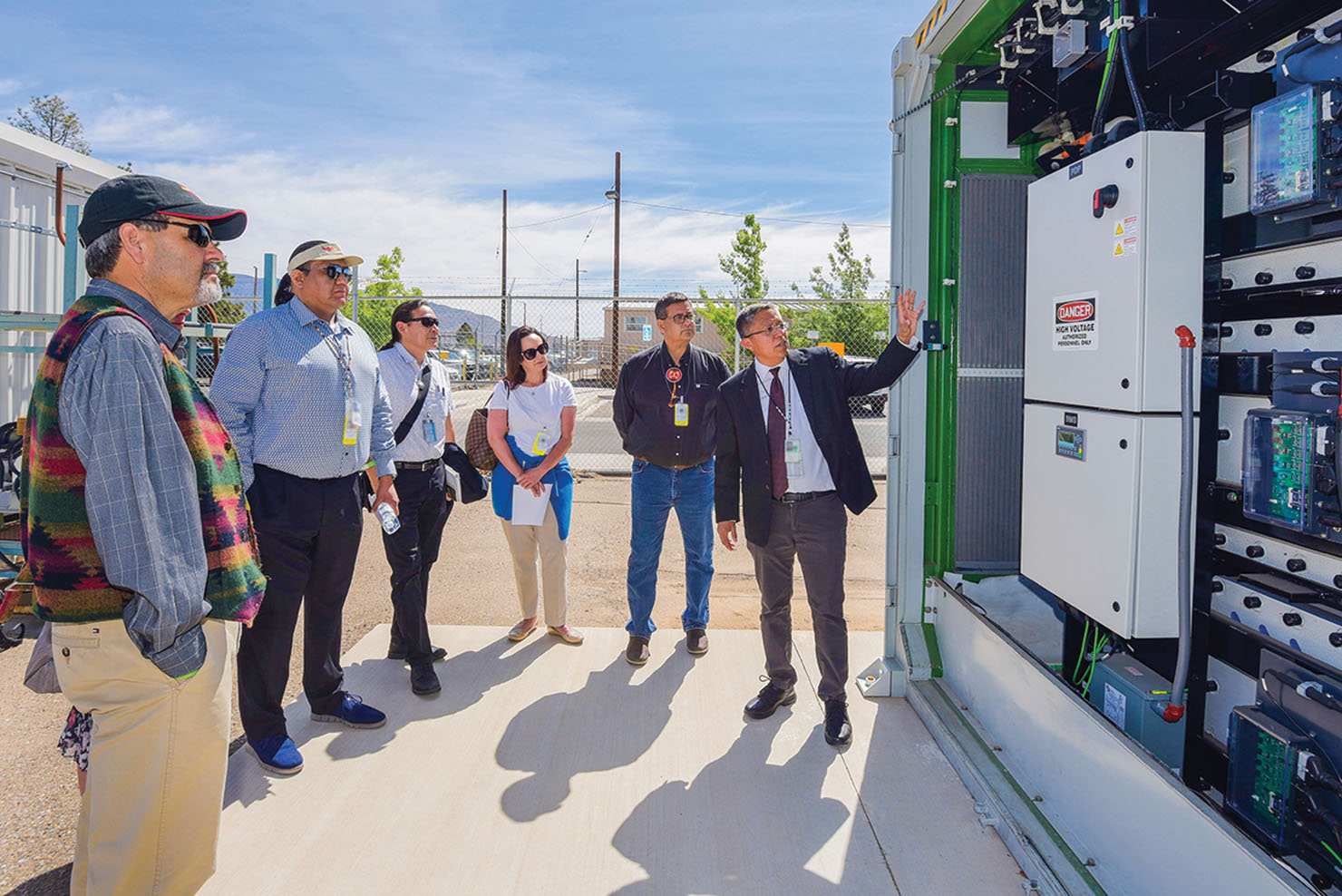Kevin Frost was recently appointed Director for the U.S. Department of Energy (DOE) Office of Indian Energy Policy and Programs, duty-stationed at DOE headquarters in Washington, D.C. Frost’s official start date as DOE-IE Director was Jan. 6, prior to that, he was the Acting Director and Deputy Director, a role he assumed in March of 2018. “I was very fortunate that former Director Carole Plowfield viewed her position and mine more as ‘co-Directors.’ She made a point to keep me informed and I did the same. When you share information before, during and after the decision-making process, progress is made,” Frost emphasized. Prior to working at DOE, Frost served on Tribal Council for the Southern Ute Indian Tribe, before resigning to accept the Deputy Director position last year. “It was an honor and privilege that tribal members allowed me to represent them as a council member. I will be forever grateful for the hope and trust they placed in me,” Frost stated.
Working with the Department of Energy, Frost is responsible for making sure the office complies with its statutory obligations in furtherance of its mission and goals. “This is a unique office with an honorable mission to maximize the development and deployment of energy solutions for the benefit of American Indians and Alaska Natives. The customer base includes tribes at different points along the energy development spectrum,” explained Frost. “The office does a lot of great work and I am in the enviable position of having a tremendous team that is willing to go the extra mile. I’d also like to point out that Sen. Murkowski offers tremendous support to this office. I know the Alaska Natives already know this, but Indian Country is very lucky to have her tireless support. It really makes a difference.”
Frost previously served as a delegate for the Indian Country Energy and Infrastructure Working Group and a board member of the National Tribal Energy Association. He holds a B.S. in Conservation Science from the College of Santa Fe and a J.D. from the University of Denver. “My education played a pivotal role. Critical thinking is mandatory for success,” emphasized Frost. “The more you learn and experience can help you reach your personal and professional goals.”
“As far as my background, I have lived on the [Southern Ute] reservation as well as the Navajo reservation at various times. At times, on both of these reservations I lived without electricity and running water. Can you believe that, here on the Southern Ute reservation? As far as we’ve come as a tribe there’s still quite a way to go. I also lived the subsistence lifestyle as well. In my opinion, these are attributes that should be a requirement for this position. There’s definitely a disconnect if one does not know ‘the struggle,’” Frost conveyed. “There’s also the ‘tribal’ component. By that I mean the tribal community that extends beyond our extended family. The culture, tradition, etc., past and present. These influences definitely help me, as well as the lessons I learned along the way as an elected official.”




